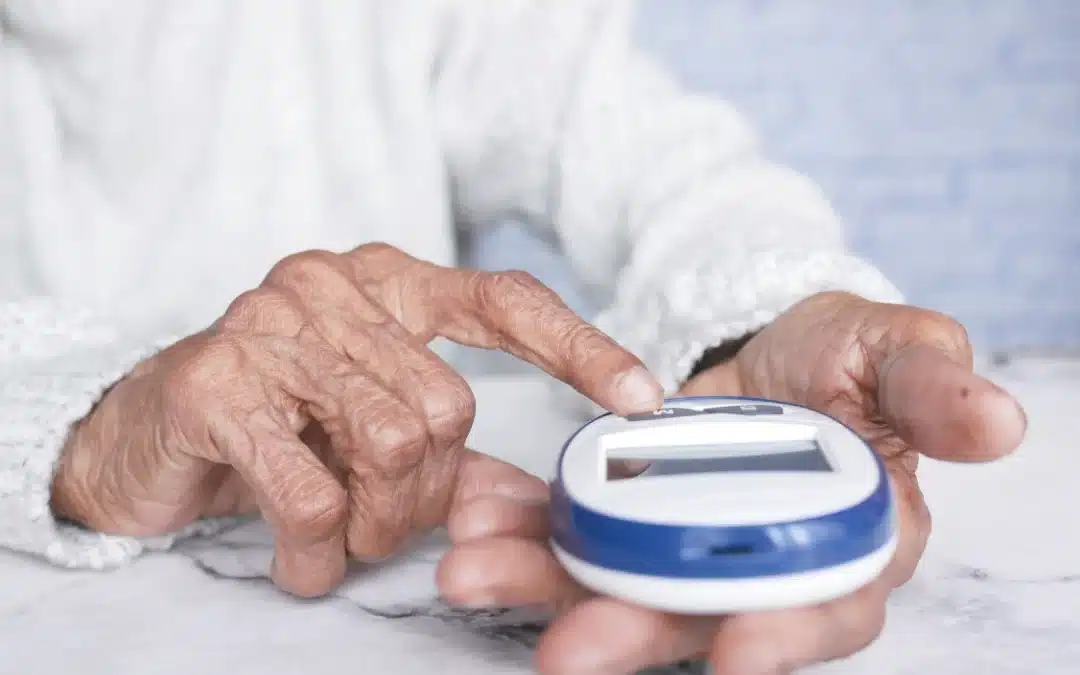Introduction:
Hypoglycaemia, or low blood sugar, is a common concern for older adults, particularly those with diabetes. It occurs when blood sugar levels drop below normal levels, leading to symptoms that can range from mild discomfort to severe complications. In this article, we will explore the causes, symptoms, and prevention strategies for hypoglycaemia in the elderly, aiming to provide valuable insights for diabetes management.
Understanding Hypoglycaemia:
Discover vital insights for diabetes management in older adults, focusing on understanding, preventing, and managing hypoglycaemia. Learn effective strategies to stabilize blood sugar levels and improve quality of life with proactive care at KITES Senior Care Centre.
To comprehend hypoglycaemia, it’s essential to know about blood sugar levels. Blood sugar, or glucose, is the body’s primary source of energy, and it comes from the food we eat. In healthy individuals, blood sugar levels are carefully regulated to stay within a narrow range. However, certain factors can disrupt this balance, leading to hypoglycaemia.
Causes of Hypoglycaemia in Older Adults:
For older adults, hypoglycaemia can occur due to various reasons, with the most common being:
• Diabetes Medications: Many older adults with diabetes take medications such as insulin or sulfonylureas to lower blood sugar levels. However, these medications can sometimes cause blood sugar to drop too low, especially if doses are not adjusted properly or if meals are skipped.
• Poor Nutrition: Older adults may experience changes in appetite, taste, or digestion, leading to irregular eating patterns or inadequate food intake. Skipping meals or not eating enough can result in hypoglycaemia, particularly for those taking diabetes medications.
• Kidney or Liver Problems: As we age, our kidneys and liver may not function as efficiently, affecting the body’s ability to regulate blood sugar levels. This can increase the risk of hypoglycaemia, especially if medications are not adjusted accordingly.
• Alcohol Consumption: Drinking alcohol, especially on an empty stomach or in excess, can lower blood sugar levels and increase the risk of hypoglycaemia, particularly for older adults with diabetes.
Symptoms of Hypoglycaemia:
Recognizing the signs of hypoglycaemia is crucial for prompt intervention. Common symptoms include:
• Shakiness or tremors
• Sweating
• Palpitations or rapid heartbeat
• Dizziness or light-headedness
• Confusion or difficulty concentrating
• Weakness or fatigue
• Blurred vision
• Headache
• Irritability or mood changes
• Severe cases may lead to seizures or loss of consciousness
Preventing Hypoglycaemia in Older Adults:
Prevention is key when it comes to managing hypoglycaemia in older adults. Here are some strategies to help prevent low blood sugar episodes:
• Monitor Blood Sugar Levels: Regularly monitoring blood sugar levels can help older adults and their caregivers identify trends and make necessary adjustments to medications, diet, and lifestyle. This is crucial for uncontrolled diabetes care at home and effective diabetes management.
• Follow a Balanced Diet: Eating regular, well-balanced meals and snacks can help stabilize blood sugar levels throughout the day. Meals should include a combination of carbohydrates, proteins, and healthy fats to provide sustained energy. This is essential for effective diabetes management and preventing fluctuations in blood sugar levels.
• Medication Management: It’s essential for older adults to take their diabetes medications as prescribed and to communicate any concerns or side effects with their healthcare provider. Adjustments to medication doses may be necessary based on changes in health status or activity levels. Effective diabetes management requires careful attention to medication regimens.
• Stay Hydrated: Dehydration can affect blood sugar levels, so older adults should drink plenty of fluids throughout the day, especially if taking medications that increase urination. Adequate hydration is vital for maintaining uncontrolled diabetes and preventing hypoglycaemia.
• Limit Alcohol Intake: Older adults with diabetes should consume alcohol in moderation and always with food to help prevent drops in blood sugar levels. Excessive alcohol consumption can disrupt diabetes management and lead to hypoglycaemia.
By incorporating these strategies into their daily routines, older adults can reduce their risk of hypoglycaemia and effectively have a diabetes management routine at home.
Conclusion
Hypoglycaemia is a significant concern for older adults, particularly those with diabetes. By monitoring blood sugar levels, following a balanced diet, managing medications, diabetes management, staying hydrated, and limiting alcohol intake, older adults can reduce their risk of hypoglycaemia and enjoy a better quality of life.
Take proactive steps towards better health and well-being of your elders by consulting KITES Senior Care Centre. Our dedicated team understands the unique challenges faced by older adults managing conditions like hypoglycaemia and diabetes. don’t let these challenges overwhelm you.
Connect with us and talk to our expert for guidance or visit the KITES senior care centre nearby.

